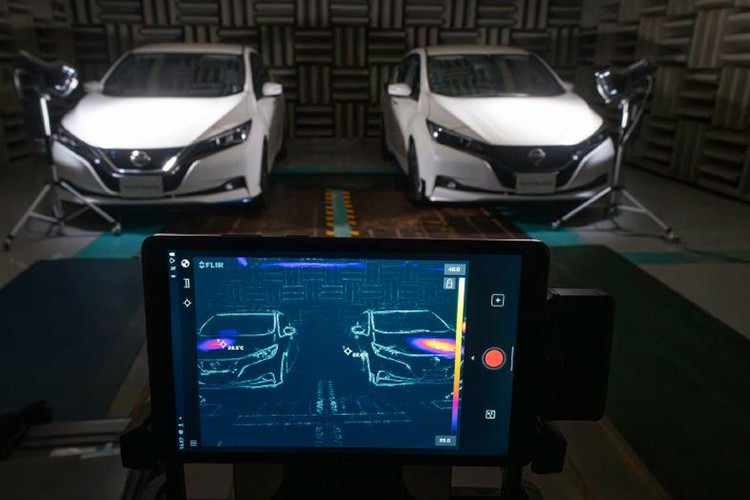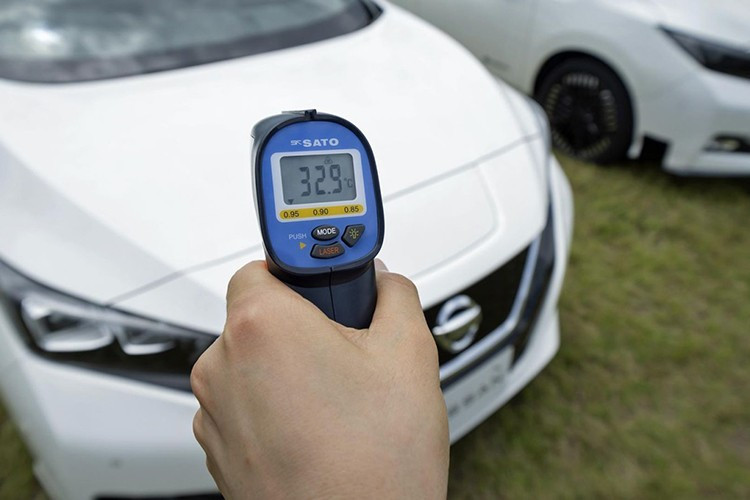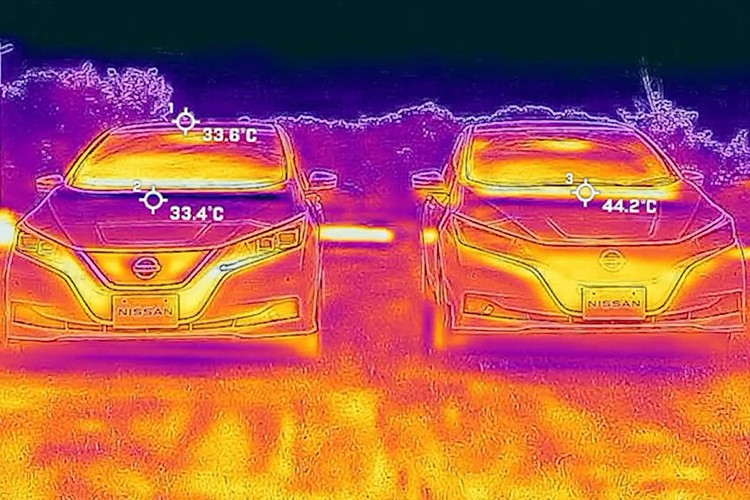Nissan has introduced an advanced car paint that can reduce the temperature of a car parked outdoors, especially in the harsh heat conditions that are increasingly common in many countries. This is part of a strategy to apply new technology to improve the user experience and protect the environment.
Metamaterial helps reflect and disperse heat effectively
According to Nissan, the new paint is based on a metamaterial containing two types of special microstructured particles. The first reflects near-infrared rays, which are the main cause of heat on a car’s body when parked in the sun. The second converts the heat into electromagnetic waves and radiates them into the environment, reducing heat absorption and keeping the cabin significantly cooler.

In a test conducted at Tokyo International Airport in August 2024, vehicles using this paint had a surface temperature reduction of up to 12°C and a cabin temperature reduction of about 5°C compared to vehicles using conventional paint. The effect is especially noticeable when the vehicle is parked in the sun for a long time, contributing to significantly reducing the need for air conditioning, saving energy and improving operating efficiency, especially for electric vehicles.
Development trends of heat-resistant technology in the global automobile industry
Currently, this paint is in the testing phase and white is the first version that Nissan is researching. The specific price has not been announced yet, but is expected to be higher than conventional paint due to the use of advanced materials and complex production processes.

In addition to Nissan, many major car manufacturers in the world are also researching and applying new technological solutions to prevent heat more effectively. Outstanding technologies include smart heat-insulating films that can automatically adjust light transmission, phase-changing materials that help stabilize the temperature in the car, or artificial intelligence-controlled air conditioning systems specifically for electric vehicles.
Heat-resistant technology: new standard for the future automotive industry
Nano-ceramic coatings are also increasingly popular thanks to their ability to reflect UV rays, resist scratches and protect the car's paint surface for a long time. Meanwhile, liquid-insulating battery cooling systems are widely applied in high-end electric vehicles, helping to increase operating efficiency and extend battery life in harsh weather conditions.

Heat-resistant technologies such as heat-reflective paint, smart window film and battery cooling are shaping the future of the modern automobile industry. This is not only a technical step forward, but also demonstrates the trend of sustainable, smart and environmentally friendly development, while optimizing the user experience in all weather conditions.
Source: https://khoahocdoisong.vn/son-phan-nhiet-cua-nissan-giup-giam-nhiet-do-oto-toi-12-do-c-post2149042789.html



































































































Comment (0)